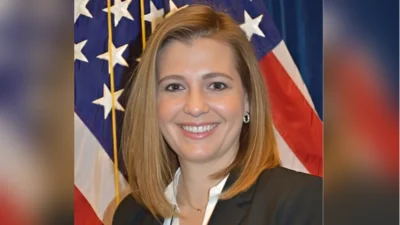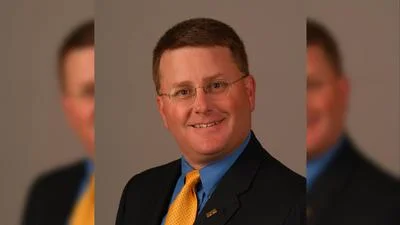The publication is reproduced in full below:
Tribute to Francis S. Collins
Mr. BLUNT. Madam President, Dr. Francis Collins, the Director of the National Institutes of Health, will retire this month after serving as the Director since 2009. That will be 12 years in one of the most challenging jobs in Washington, maybe even in the world.
Dr. Collins served under three Presidents in that job. No other person has served under more than one President. During that 12 years, certainly there had been amazing advances in healthcare.
As a Washington Post reporter put it, and this was a quote from his article, ``News that Francis Collins is stepping down as Director of the National Institutes of Health is a bit like hearing that Santa Claus is handing off his reindeer reins.'' This is the time of year to think about that.
When he announced his retirement earlier this year, it was certainly followed by a flood of comments from the scientific community. They used words like ``brilliant,'' ``national treasure,'' ``smartest man in any room,'' ``beloved,'' and ``gentleman.'' I would also echo those words. I think I would add, from the great opportunities I have had to work with him and spend time with him, ``straightforward,'' ``kind,''
``respected.'' By the way, he never seems to need to act like the smartest person in any room even if and when he is.
You know, throughout the 12 years he has been Director, he has made countless contributions to biomedical research and public health. Under his leadership, the NIH started groundbreaking research programs like the BRAIN Initiative, which is aimed at revolutionizing our understanding of the human brain, and the All of Us Precision Medicine Initiative, which is a historic effort to try to tailor medical care to the individual, and we see that is where medical care is going.
As the Director of the NIH, Francis presided over the creation of the National Center for Advancing Translational Sciences, which translates basic science discoveries into cures. He started the Cancer Moonshot and the Accelerating Medicines Partnership and increased investment in Alzheimer's and opioid research. He also steered the U.S. Research Enterprise during a once-in-a-lifetime infectious disease pandemic. Without his vision and leadership, we may not have been able to develop and deliver several FDA-approved COVID vaccines, COVID therapies, and diagnostic tests in less than a year.
We wouldn't want to forget that this wasn't the first major health challenge that Dr. Collins navigated us through. He also led the responses to the H1N1 flu outbreak in 2009 and to the 2014 and 2015 Ebola outbreak. It does sort of make you wonder why he was still there when this pandemic came along, but, again, we are fortunate that he was.
His impact on health and healthcare really didn't start when he became the NIH Director. In fact, before becoming Director, he made significant contributions to the research field of genetics. He codiscovered the gene that causes cystic fibrosis, and he found genes for Huntington's disease and type 2 diabetes.
Maybe his most significant scientific contribution was to head the Human Genome Project, which mapped and sequenced the full human genome for the first time. That monumental effort has allowed scientists to unlock some of the great mysteries of human life. It has created the potential to develop treatments and cures for some of our most serious diseases. What it has really done is to have allowed us to begin to think about personalized medicine--realizing that every person is different than every other person and that everybody has the capacity to fight back against any disease that challenges them. Usually, the disease can quickly overwhelm that capacity, which is why the addition of immunotherapy and the addition of personalized medicine are such critical tools for today.
His work had a tremendous impact at the time, and it will have an even greater impact. We can see that impact as we move forward and look at how we need to look at personalized medicine. All of this has been accomplished in a way wherein very few scientists, I think, could have had the articulation of vision that Francis has to share it in a way that people can not only begin to understand these concepts but buy into the concepts.
Certainly, one of the proudest accomplishments I had in the Senate with him was in working to increase NIH funding. When I became chairman of that committee 7 years ago, we had a 10-year stagnation, really, in funding. In working with Senator Durbin, who was here earlier this morning and talked about Dr. Collins--I tried to grab, to join, that moment but couldn't--and with Senator Alexander and Senator Murray on our side of the building and many others and in working with Congressman Cole and now-Chairwoman DeLauro of the Committee on Appropriations on the other side, we just decided we were going to make NIH research a priority and, over the next 7 years, increase funding by 43 percent at a time when so many things were happening so quickly.
Francis Collins, of course, not only was part of sharing that goal but, frankly, was also part of saying: Don't come up with a goal where, when you get there, you are going to stop. Let's keep moving forward as long as we are making the kinds of scientific advances that we know the country needs to make and the world needs to make. And we are doing that.
Finally, he may be remembered the most in many cases for the hope he just has been able to bring to patients and communities. He is a physician. He is a scientist. He has been the Director of NIH, as I said, for 12 years. But part of his real ability is the ability to share who he is and to share the potential of science.
During the time of COVID, we saw Francis coming up with songs and other ways to really focus on the pandemic and the way we need to respond to that pandemic. He is an incredibly skillful person. His legacy, I think, will live through generations of researchers. He has inspired the countless lives he has touched. His impact will be felt for a long time.
I just want to say, on behalf of all of my colleagues--all of whom have been part of that progress of making NIH and health research a priority--thank you, Francis, for your leadership, for your friendship, and for your public service.
The PRESIDING OFFICER. The Senator from New Hampshire.
Ms. HASSAN. Madam President, before I start my remarks, I would like to thank the Senator from Missouri and add my thanks to Dr. Francis Collins for his leadership and for his contributions to our country, to our country's future, and for his reassurance during very difficult times.
I thank Senator Blunt for so eloquently recognizing Dr. Collins.
SOURCE: Congressional Record Vol. 167, No. 216
The Congressional Record is a unique source of public documentation. It started in 1873, documenting nearly all the major and minor policies being discussed and debated.
Senators' salaries are historically higher than the median US income.


 Alerts Sign-up
Alerts Sign-up